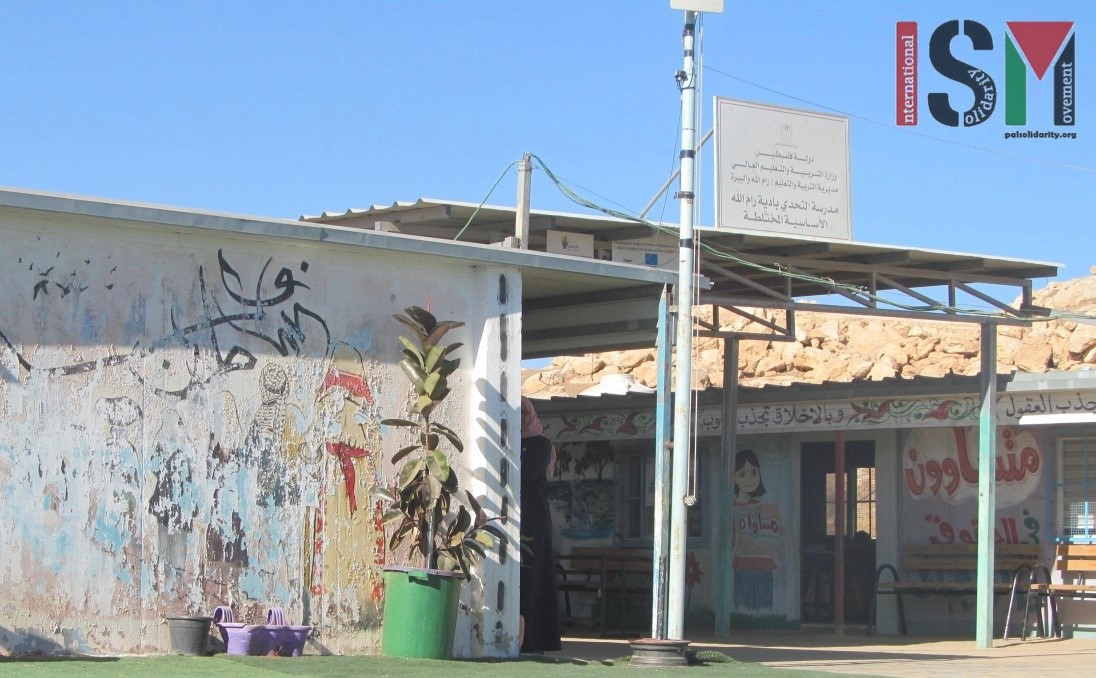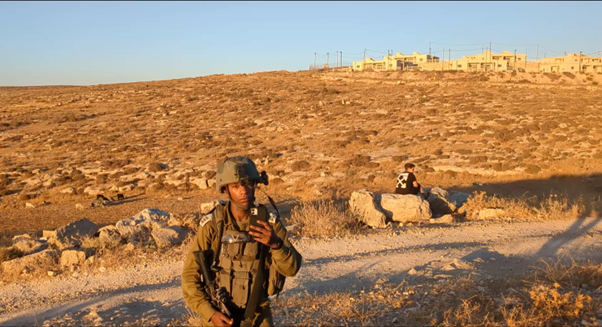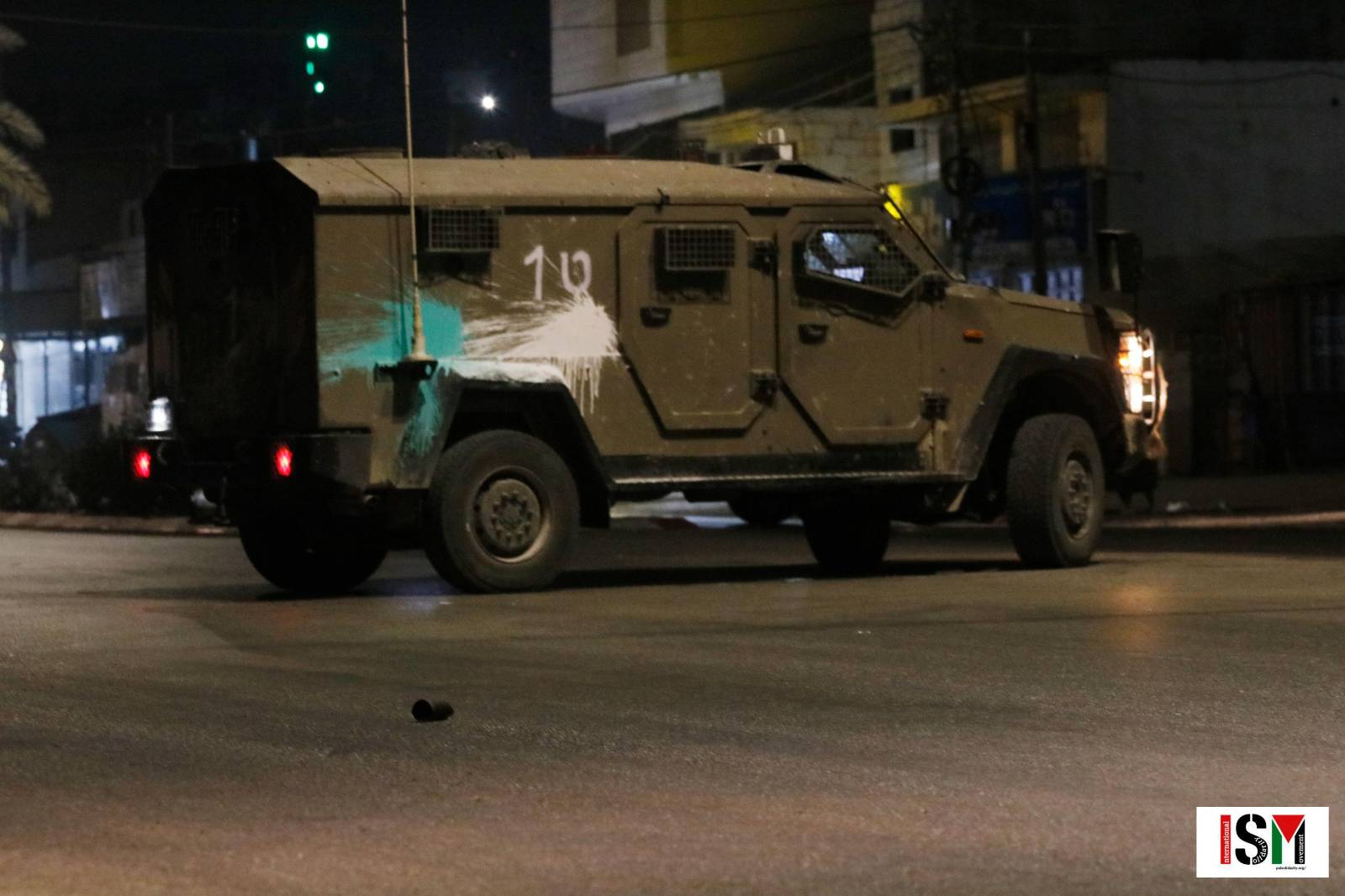Category: Reports
-
Resisting the expulsions in Wadi Siq
Wadi Siq is a Bedouin community East of Ramallah, under threat of forced displacement. Some families have already been chased away. The combined pressure from the Occupation authorities and the fanatical settlers has been increasing dramatically in recent months. Four nearby communities – Ein Samiya, Al-Qabun, Ras al-Tin and a community close to Taybeh Junction…
-
Watch: Israeli soldiers harass Palestinian teenager and try to intimidate internationalists in Masafer Yatta
On August 10th, three israeli soldiers harassed Abud Huraini, a palestinian teenager from the village At-Tuwani, in the region of Masafer Yatta in the South Hebron Hills, while he was brining out his flock of goats to graze. The three soldiers arrived by jeep from the illegal israeli settlement of Ma’on, which is located just…
-
Destruction after destruction in Nur Shams camp
Photos and text by Diana Khwaelid for ISM 20 days after the storming and the recent massacre in Nur Shams refugee camp (in Tulkarem), the Israeli occupation launched a military campaign into the camp again. On the night of Saturday, 24-9-2023, at 12:00 AM, dozens of Israeli military vehicles, two bulldozers and two D9-type military…



